Earth
Sign up for our newsletter
We summarize the week's scientific breakthroughs every Thursday.
-
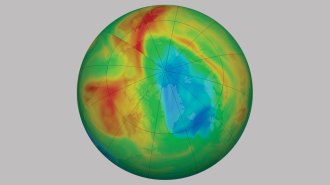 Climate
ClimateThe largest Arctic ozone hole ever measured is hovering over the North Pole
A strong polar vortex in early 2020 led to what may be a record-breaking hole in the ozone layer over the Arctic.
-
 Life
LifeThe Great Barrier Reef is suffering its most widespread bleaching ever recorded
Major bleaching events are recurring with increasing frequency on the Great Barrier Reef, hindering its recovery.
-
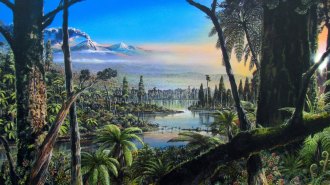 Earth
EarthRoughly 90 million years ago, a rainforest grew near the South Pole
A forest flourished within 1,000 kilometers of the South Pole, probably because of high atmospheric carbon dioxide levels and an ice-free Antarctica.
-
 Animals
AnimalsParasitic worm populations are skyrocketing in some fish species used in sushi
Fishes worldwide harbor 283 times the number of Anisakis worms as fishes in the 1970s. Whether that’s a sign of environmental decline or recovery is unclear.
By Amber Dance -
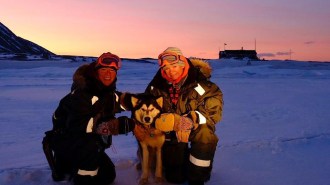 Climate
ClimateThese women endured a winter in the high Arctic for citizen science
Two women have spent the winter on the Norwegian archipelago of Svalbard to collect data for climate scientists around the world.
-
 Environment
EnvironmentLegos may take hundreds of years to break down in the ocean
Sturdy types of plastic may persist in seawater for much long than scientists previously thought.
-
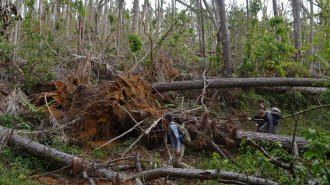 Climate
ClimateHow Hurricane Maria’s heavy rains devastated Puerto Rico’s forests
Hurricane Maria wreaked havoc on Puerto Rican forests in some unexpected ways.
-
 Climate
ClimateAustralia’s wildfires have now been linked to climate change
Australia’s devastating 2019–2020 wildfires were at least 30 percent more likely due to human-caused climate change.
-
 Climate
ClimateOrdering from a local store can curb online shopping’s CO₂ emissions
Online shopping isn’t necessarily better for the environment than going to the store in person, a new study finds.
-
 Climate
ClimateHow scientists wrestle with grief over climate change
With climate change altering our world at an increasing pace, scientists who monitor and study nature are frustrated and grieving.
-
 Climate
ClimateEconomic costs of rising seas will be steeper than we thought, unless we prepare
A study estimates 4 percent in annual global GDP losses by 2100 due to sea level rise, unless people curb emissions and prepare for flood risks.
By Megan Sever -
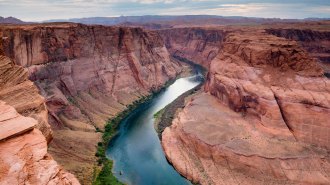 Climate
ClimateClimate change is slowly drying up the Colorado River
Annual water flow in the Colorado River decreased by over 11 percent due to warming in the 20th century, a new study estimates.